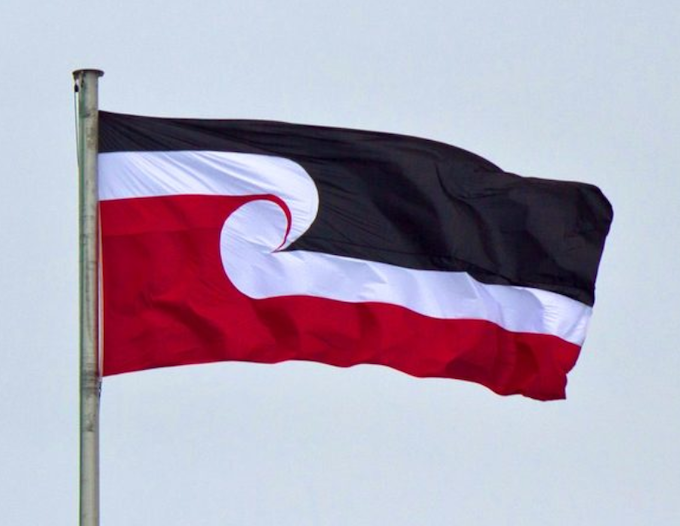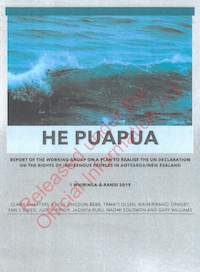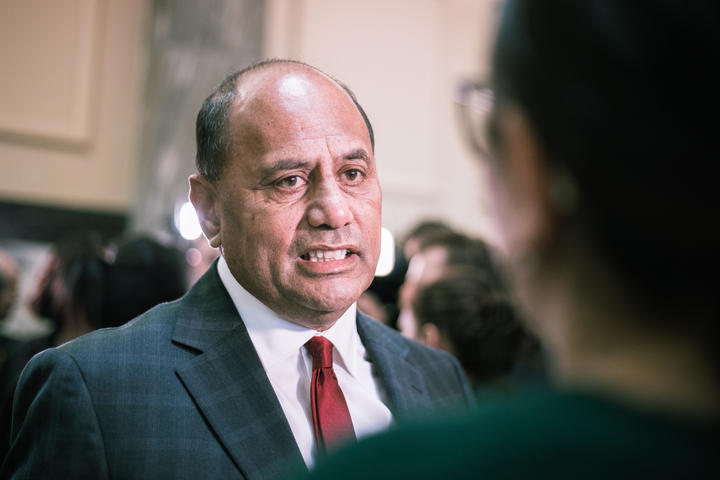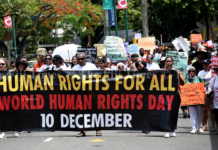
ANALYSIS: By Meriana Johnsen,
It was supposed to chart a new way forward but He Puapua, a report on how the government can uphold tangata whenua rights by giving affect to tino rangatiratanga, has become bogged down in the swamp of politics.
New Zealand was one of four countries that voted against adopting the United Nations Declaration of the Rights of Indigenous Peoples in 2007.
That was under a Helen Clark-led Labour government, just three years after the Foreshore and Seabed controversy.

Going back a few more years, Labour declared all government funding had to be based on need and not race, in response to former National Party leader Don Brash’s Ōrewa speech in 2004.
Within just a year of Brash’s campaign against Māori “special privileges”, Clark went from mentioning the Treaty of Waitangi 26 times in her speeches to just three.
Her senior cabinet minister, Trevor Mallard, now Speaker of the House, had the job of responding to the Ōrewa speech; as past of that response he stated “Māori have no extra rights or privileges under the treaty or in the policy of the New Zealand government”.
Fastforward to 2021 and the latest campaign by the National Party – with ACT alongside – against “separatist” and “racist” policies, cannot simply be dismissed as a desperate attempt to gain traction in the polls, as Minister of Māori Development Willie Jackson describes it.
Separatist rhetoric
The separatist rhetoric has sent Labour running from Māori before, and if there is a boost in National’s polls this time around, it could spook the Labour government into backing away from He Puapua.
It might end up like Puao-te-Ata-tu, the landmark report by a Ministerial Advisory Committee from 1988 on how to stop so many Māori children going into state care which includes recommendations to devolve power of the care and protection of tamariki Māori to iwi and hapū.

Willie Jackson describes National and ACT’s latest campaign against “separatist” and “racist” policies as a desperate attempt to gain traction in the polls. Photo: RNZ / Samuel Rillstone
It gathered dust for more than 30 years and He Puapua could too be shelved.
Labour may have avoided much of the political spectacle if it had proactively released the report, and front-footed the kōrero on what partnership between iwi-hapū and the Crown could look like.
Ministers say they did not want it to appear like it was government policy and for it to be misrepresented, misquoted or misused.
That has backfired.
Upper House
National and ACT say the report calls for a “Māori Parliament”, when in fact it proposes an Upper House to scrutinise legislation for Te Tiriti o Waitangi compliance, made up of 50 percent rangatiratanga representation (iwi/hapū leadership) and the other half from Parliament.

Politics has overshadowed the substance of He Puapua and the opportunity to have a national conversation about New Zealand’s constitution and the place of Te Tiriti o Waitangi.
It suggests making Waitangi Tribunal recommendations binding, and paying royalties to Māori for natural resources such as water and petrol.
It also calls to exclude Māori freehold land from the Public Works Act, and for Māori to maintain rights and interests in respect of all Crown lands.
Then there’s the higher level stuff or structural changes needed to give effect to tino rangatiratanga.
Much of this is pulled from existing literature like Matike Mai, the report by Professor Margaret Mutu and Dr Moana Jackson suggesting models for an “inclusive Constitution for Aotearoa” using Te Tiriti o Waitangi and the Māori Declaration of Sovereignty (He Whakaputanga o Te Rangatiratanga o Nu Tireni 1835) as its basis.
It proposes to massively expand the small sphere of Māori governance over people and places and the currently miniscule area of co-governance between rangatiratanga and the government in the next 20 years.

Co-governance bodies
For instance, it asks that co-governance and co-management bodies for freshwater be made compulsory.
There are a number of existing models of co-governance – just take a look at Te Mātāwai (the independent statutory body for the revitalisation of te reo Māori).
Then there are models for how Māori can have full authority over an area – like Te Urewera, which has the same legal rights as a person and is managed by Ngāi Tūhoe, the kaitiaki (guardians) of forest, making decisions on its behalf.
As Waikato-Tainui leader Rāhui Papa said this week, no one cares after three years.
There are those who will never agree with implementing Te Tiriti o Waitangi on the basis of its guarantee of tino rangatiratanga – self-determination, sovereignty – for Māori.
ACT Party leader David Seymour said self-determination should be for everyone, not the “exclusive preserve of Māori based on a certain interpretation of the Treaty”.
He argues that the modern English translation of the Māori version of the Treaty, by Sir Hugh Kawharu gives all people of New Zealand the same rights and privileges under article 3.
Māori equity guarantee
The interpretation put forward in He Puapua is that article 3 guarantees Māori equity, which “does not mean all individuals should be treated the same”.
The Waitangi Tribunal – the judiciary responsible for interpreting the Treaty – concludes the Crown must recognise the status of Māori groups exercising rangatiratanga in order to honour its Treaty obligations.
All of this is laid out in He Puapua which report author Claire Charters said was supposed to be an “instrument to have a genuine discussion about realising our international obligations and what Te Tiriti o Waitangi requires”.
Instead, it will likely keep being kicked around as a political football, particularly while the idea of the nascent Māori Health Authority – which seeks to give affect to Māori-Crown partnership – is still fresh.
Māori Party co-leader Debbie Ngarewa-Packer cannot understand “what is so repelling and revolting” about partnership with Māori for National and ACT.
And there is the fear that current political discourse could lead to racial division like the Brash years, Minister for Māori Development Willie Jackson has said, although he adds his belief is New Zealanders are “more mature now”.
The Māori Labour caucus will need to be a backbone for the government as it progresses the Authority and chooses what recommendations of He Puapua it moves on.
The report name means “to break” which the authors said was to represent “the breaking of the usual political and societal norms and approaches”.
So far, that’s yet to be realised.
This article is republished under a community partnership agreement with RNZ.














































